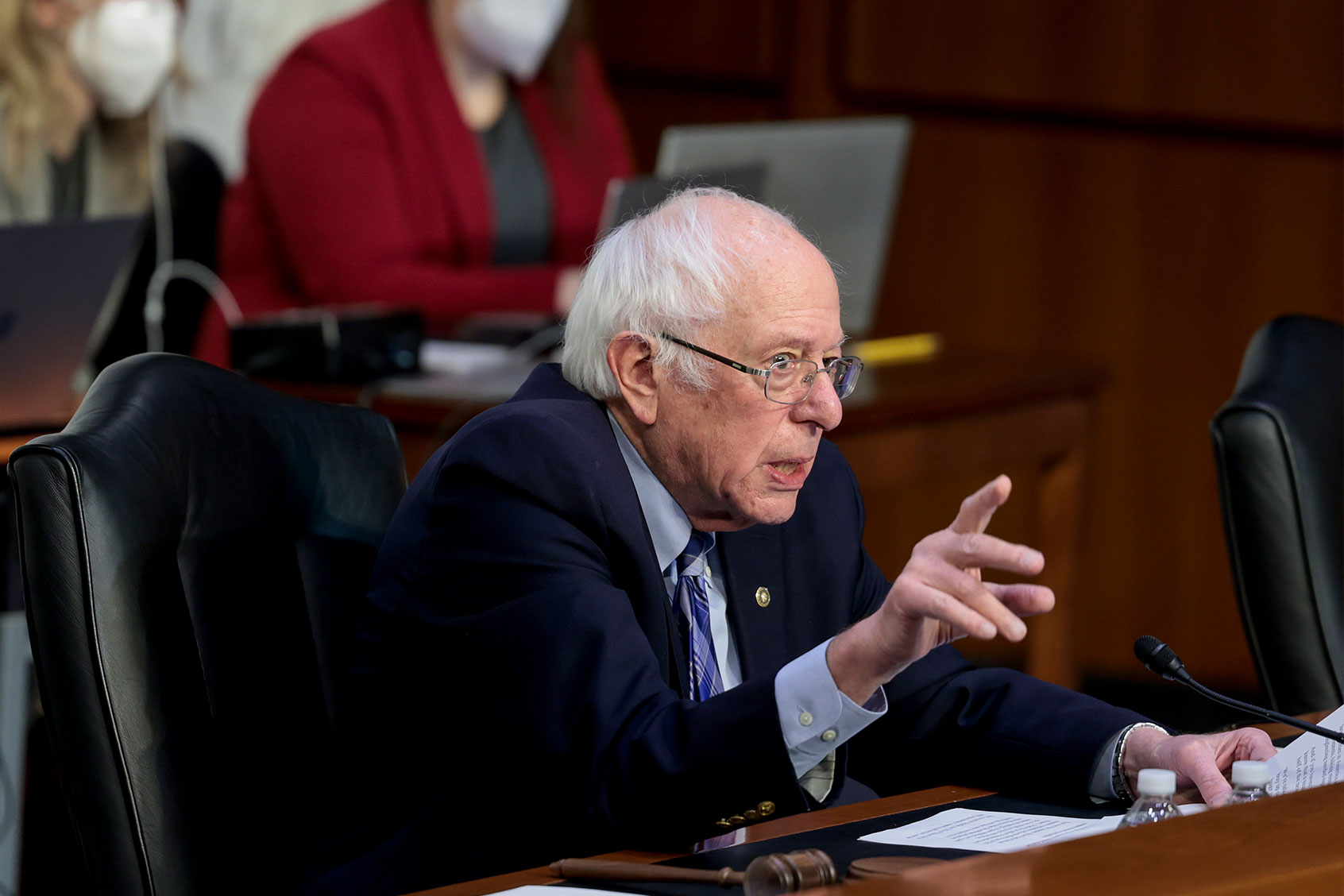
Sen. Bernie Sanders delivered a floor speech on Monday hailing the growing wave of union victories across the United States, including high-profile wins by Amazon and Starbucks workers, as an essential challenge to the country's vastly unequal political and economic status quo.
"While the billionaire class is becoming much, much richer, real weekly wages for American workers are $40 lower today than they were 49 years ago," Sanders (I-Vt.) said in an address in the Senate chamber just days after Amazon warehouse workers in Staten Island, New York voted to form the company's first-ever union in the U.S.
"In fact," Sanders continued, "during that period there has been a massive, massive transfer of wealth from the working class and middle class of our country to the top 1%."
The Vermont senator pointed to a recent analysis estimating that $50 trillion in wealth was redistributed from the bottom 90% to the top 1% between 1975 and 2018.
That decades-long trend of ballooning wealth at the very top has accelerated during the coronavirus pandemic, which has seen the roughly 700 billionaires in the U.S. add $1.7 trillion to their collective fortunes as Covid-19 inflicted devastation on the country, with poor communities and low-paid workers bearing the brunt.
"Today," said Sanders, "multi-billionaires like Elon Musk, Jeff Bezos, and Richard Branson are off taking joy rides on rocket ships to outer space, buying $500 million super-yachts, and living in mansions with 25 bathrooms. And let's be clear. It's not just income and wealth inequality. It is economic and political power."
Corporate profits also soared to record highs last year even as the deadly coronavirus continued to wreak havoc and as inflation ate away at ordinary workers' wages.
In his speech on Monday, Sanders portrayed grassroots unionization efforts at Amazon and Starbucks as further evidence that "working people all over this country are sick and tired of being exploited by corporations making record-breaking profits."
"They are sick and tired of billionaires like Jeff Bezos and Howard Schultz, the founder of Starbucks, becoming obscenely rich during the pandemic, while they put their lives on the line working for inadequate wages, inadequate benefits, inadequate working conditions, and inadequate schedules," said Sanders, the chair of the Senate Budget Committee. "If you think that the union victories at Amazon and Starbucks are an aberration, you would be sorely mistaken."
While union membership declined last year, 2021 was marked by a wave of strikes and organizing efforts that many saw as the possible start of a resurgent labor movement after years of devastating corporate attacks on collective bargaining rights. According to one recent study, the corporate assault on unions over the past four decades has cost the median U.S. worker $3,250 per year.
"The union struggles that have been taking place against corporate greed ultimately determine the quality of wages, benefits, and working conditions that all American workers enjoy," Sanders said Monday.
There's no sign that corporate America intends to end its union-busting in the face of mounting labor organizing across the country. In 2021 alone, Amazon spent $4.3 million on anti-union consultants, and the company is expected to challenge the election results in Staten Island.
During a town hall on Monday, Schultz—an experienced union-buster who returned as Starbucks CEO this month amid organizing drives in dozens of states nationwide—declared that the hugely profitable coffee company is "being assaulted in many ways by the threat of unionization."
BREAKING: In a town hall meeting, Starbucks CEO Howard Schultz just told workers that Starbucks is “being assaulted in many ways by the threat of unionization.”
— More Perfect Union (@MorePerfectUS) April 4, 2022
Schultz also referred to @SBWorkersUnited as an “outside organization trying to take our people.” pic.twitter.com/oYMP01gKP2
Sanders argued Monday that "in the year 2022, the United States and the rest of the world face two very different political paths."
"On one hand, there is a growing movement towards oligarchy in which a small number of incredibly wealthy and powerful billionaires own and control a significant part of the economy and exert enormous influence over the political life of our country," said the Vermont senator. "On the other hand, in opposition to oligarchy and corporate greed, there is a movement of working people and young people who, in ever-increasing numbers, are fighting for justice in a way that we have not seen in years."
"And it is that growing trade union movement that makes me so very hopeful for the future of this country," he added, "and it is a movement that I will do all that I can to support."







